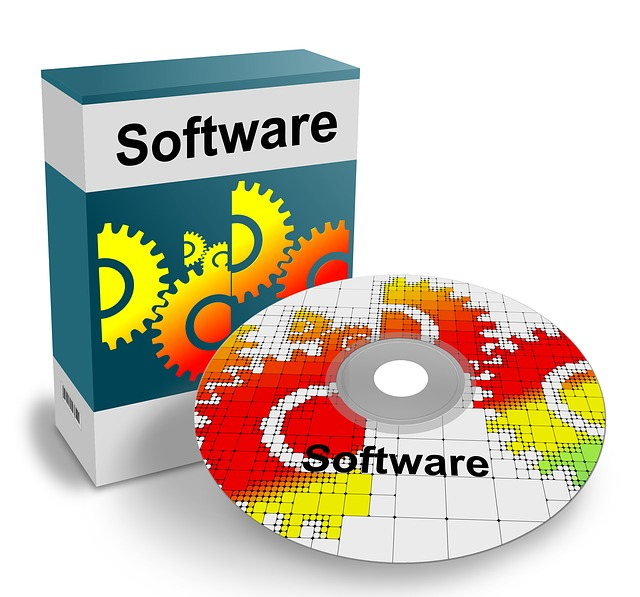
Are you looking to break into the world of web application development but don’t know where to start? Whether you’re a tech-savvy newcomer or simply interested in broadening your skillset, this beginner’s guide is here to help. From understanding the fundamentals of web development languages such as HTML and CSS, to mastering popular frameworks like React and Angular, we’ve got you covered. Join us on this exciting journey as we explore all things web application development!
Application of web development is the process of creating a web application. A web application is an application that can be accessed over the internet. It can be accessed from any computer or device with an internet connection.
Web applications are often used to provide a service or information to users. They can be used to book tickets, track orders, or even provide a gaming experience. . Web software and apps can be developed for businesses, organizations, or individuals.
There are many different programming languages and frameworks that can be used to develop a web application. Some popular choices include PHP, Ruby on Rails, and ASP.NET. In order to create a web application, you will need to have some basic knowledge of HTML, CSS, and JavaScript.
There are a few different types of web applications that you can develop, each with their own benefits and drawbacks. Here is a quick overview of the most popular types of progressive web apps:
Static web applications are the simplest type of web application to develop. They are essentially just HTML pages that are served up by a web server. There is no dynamic content or user interaction, so static web apps are very fast and easy to deploy. However, they are also very limited in terms of functionality.
Dynamic web apps are more complex than static web apps, but they offer much more in terms of functionality. With dynamic web apps, the server generates HTML pages on-the-fly based on user input or other data. This makes them much more flexible and powerful than static web apps, but also more difficult to develop and deploy.
Single-page applications (SPAs) are a type of dynamic web app that only loads a single HTML page when the user first visits the app. All subsequent interactions with the app happen within that same page, making for a very fast and responsive user experience. However, SPAs can be difficult to develop and debug due to their complex client-side codebases.

When it comes to web app development, there are both pros and cons that must be considered. On the plus side, developing a web appcan be a great way to reach a global audience with your product or service. Additionally, web apps tend to be more cost-effective and require less maintenance than traditional desktop applications.
However, there are also some potential drawbacks to keep in mind. For example, web apps may not always offer the same level of functionality. Additionally, web applications can be more vulnerable to security threats than their desktop counterparts.
Ultimately, whether or not developing a web application is the right decision for you will depend on your specific needs and goals. If you’re looking for a cost-effective way to reach a global audience, then a web app may be the way to go. However, if you need an extremely robust and high-performing application, you may want to stick with a desktop application.
The different stages of web app development include:
This is the first stage of web application development, where you need to gather all the requirements for the project. This includes understanding the client’s needs support business processes, goals and objectives.
In this stage, you will start designing the user interface and architecture of the web application. This will include creating wireframes and prototypes for custom web apps.
Once the design to develop web apps is approved, you can start developing the actual code for the web application. This stage will also involve setting up the hosting environment and testing the application.
After the web application is developed and tested, it needs to be deployed on a server so that it can go live. This stage will also involve tasks such as setting up security measures and monitoring performance.

In order to be a successful web application developer, there are a few key skills that you will need to possess. Firstly, it is important to have a strong understanding of the different web development frameworks and technologies that are available. Secondly, you will need to be able to code in at least one programming language; PHP, Java and Python are all popular choices. Finally, you should also have experience in using databases such as MySQL or MongoDB, as well as HTML, CSS and JavaScript.
When it comes to choosing a web application development platform, there are a few things you need to take into account. The first is the language the platform uses. If you’re not a fan of coding in PHP, then you might want to look for a platform that uses Python or Ruby. The second thing is the cost. Some platforms are free, while others can be quite expensive. The third thing is the features the platform offers. Some platforms offer more features than others, so you’ll need to decide which ones are most important to you. Finally, you’ll need to decide if you want a hosted or self-hosted platform. Hosted platforms are usually easier to use, but they can be more expensive. Self-hosted platforms require more work to set up, but they’re usually cheaper in the long run.

There is no definitive answer to which language or tech stack is “best” for web application development, as the most suitable choice depends on various factors such as project requirements, available resources, and developer experience. However, here are some popular programming languages often used for web application development:
A widely used server-side scripting language, PHP is often employed for building dynamic web applications. Laravel and Symfony are popular PHP frameworks that facilitate development.
Widely used for frontend development, JavaScript has become indispensable for creating dynamic and interactive web applications. With the help of Node.js, it can also be used for backend development. Modern frameworks for JS appear almost daily.
Known for its simplicity and readability, Python is a versatile language suitable for various types of web applications. Popular web frameworks like Django and Flask are used to build robust and scalable applications.
Ruby on Rails is a popular web application framework that offers rapid development, great community support, and numerous libraries and plugins.
A powerful, platform-independent language, Java is often used for building large-scale, enterprise-level web apps. Spring and JavaServer Faces (JSF) are common frameworks.
A versatile language, C# is often used in conjunction with the .NET framework for building web apps. ASP.NET is a popular framework in this domain.
Ultimately, the “best” language for web application development depends on your specific needs and preferences. If you are comfortable with a particular language, it may be best to leverage your existing skills and select a corresponding web development framework.

Custom native apps or web app development refers to the process of designing, building, and deploying a web application tailored to meet specific requirements, needs, or business goals. Unlike off-the-shelf software solutions, custom web applications are developed from scratch to address unique challenges, solve particular problems, or streamline specific workflows.
Custom web app development typically involves the following steps:
Understanding the client’s needs, objectives, and expectations for the web application. This may include gathering functional and non-functional requirements and defining the scope of the project.
Creating wireframes, mockups, and prototypes to establish the application’s look and feel, user interface (UI), and user experience (UX). This phase also involves planning the application’s architecture, technology stack, and data models.
Writing the application code, implementing the chosen technologies, and integrating various features and functionalities based on the design and requirements. This phase often includes both frontend and backend development.
Ensuring the web application meets quality standards by identifying and fixing bugs, errors, or performance issues. This step may involve various types of testing, such as unit, integration, system, and user acceptance testing.
Launching the web application on a live server and making it accessible to end-users.
Providing ongoing updates, bug fixes, and improvements to the web application based on user feedback and evolving business needs.
Custom web app development offers several advantages, such as greater flexibility, scalability, and the ability to address specific business needs more effectively. However, it may also require more time, resources, and investment compared to using pre-built web solutions, or web application frameworks.

Numerous companies and agencies offer custom web app development services, ranging from small businesses to large-scale enterprises. These companies typically provide end-to-end services, from consultation and design to development, testing, and deployment.
Obviously, we think our company Nomadic Soft is the best. We are a full stack web and mobile app development company. We have experience with enterprise systems, trading platforms, mobile apps, progressive web applications and insurance verification software tools.
Other custom web development companies include:
These are just a few examples, and there are many other companies and independent developers offering custom web development services. When selecting a web application development company, it’s essential to consider factors such as portfolio, client testimonials, industry experience, and the company’s ability to meet your project’s specific requirements, timeline, and budget.

The cost of web app development can vary greatly depending on factors such as complexity, features, technology stack, development team size, and geographic location of the web application development companies or team. Here’s a general outline of the factors that can affect web app development costs:
With these factors in mind, web app development costs can range from as low as $5,000 for a simple web app developed by a small team or freelancers to over $100,000 for a large-scale, complex web application developed by a reputable agency.
To estimate the cost of web app or website development, for your specific project, it’s best to consult with development companies or freelancers, discuss your requirements, and request quotes. This will provide a more accurate cost estimate tailored to your project’s needs.

The cost of hiring an app developer depends on various factors, such as their experience, skillset, geographic location, and the complexity of the web development project. Rates for app developers can vary significantly based on these factors. Here’s a general breakdown of app developer costs:
With these factors in mind, app developer costs can vary widely. For example, hiring a junior developer from a low-cost region might cost you around $20 to $40 per hour, while an experienced developer from a high-cost region might charge $100 to $150 per hour or more.
To get an accurate estimate of app developer costs for your specific project, it’s best to discuss your requirements with potential developers or agencies and request quotes. This will give you a clearer understanding of the costs involved in hiring an app developer that meets your needs.

A web application business is a company that builds, maintains, and markets web applications or offers related services, with the goal of generating revenue and creating value for its customers. Web apps are interactive, browser-based software programs that can be accessed over the internet, and they serve various purposes, such as facilitating communication, collaboration, retail and ecommerce organizations i-commerce, or content management. A web application business can be involved in one or more of the following activities:
A web application business can focus on any combination of these activities or specialize in a particular niche or industry, depending on its expertise, resources, and business objectives.

Web application development is an ever-evolving field, and with the right guidance, a beginner can easily navigate their way through the complexities. This guide provided an introduction on what web applications are and how to develop them using the HTML/CSS/JS stack. We hope that this guide gave you a better understanding of web application development and inspired you to pursue your own web development projects. Good luck in developing your perfect web application!

Entrepreneur and full-stack web developer capable of multitasking and completing large-scale projects in a short period of time. Founder of moy-razmer.ru and nomadicsoft.io, large experience in e-commerce and various SaaS projects

Custom eCommerce development starts with your needs. No matter what size your business is, crafting killer websites or robust applications with Nomadic Soft is a winning strategy. Our development team will always use the latest tech tools to build your business interactive and engaging web interfaces and applications.